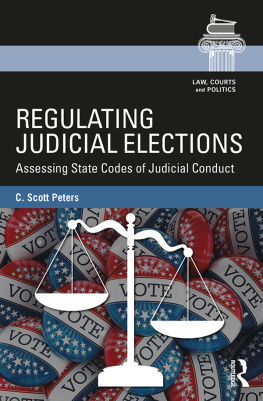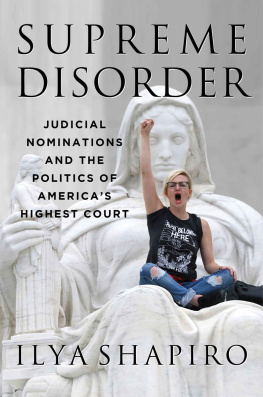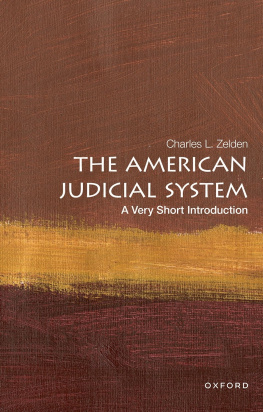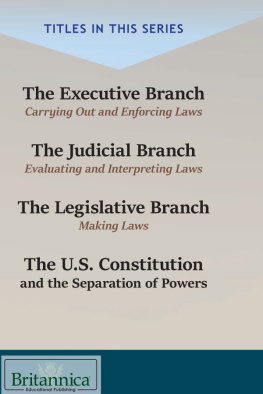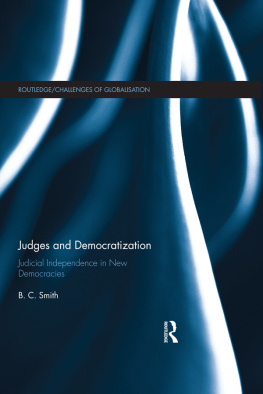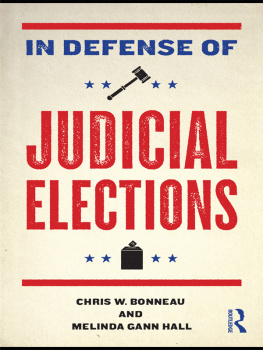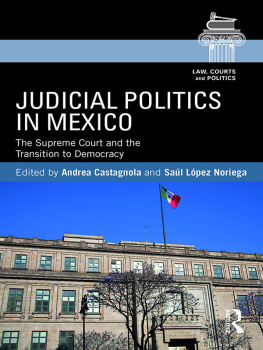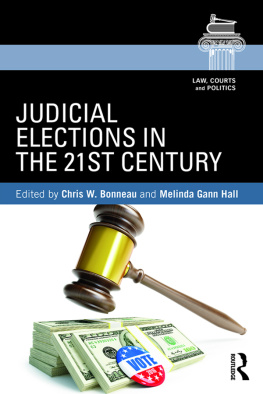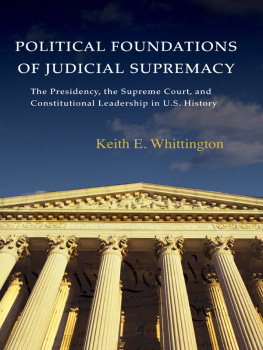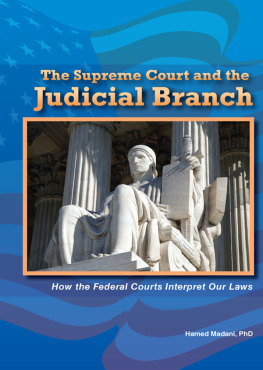Regulating Judicial Elections makes outstanding contributions to the scientific literature and the intense debate about electing judges in at least two ways: 1) by providing expertly drawn empirical evidence about the sometimes surprising effects of codes of judicial conduct on fundamental features of state supreme court elections, and 2) by advancing a more sophisticated and nuanced understanding of the traditional normative frames of judicial independence and accountability, including the potential for accountability to promote the rule of law. This exceptionally well crafted volume is a must-read for political scientists, legal scholars, and practitioners interested in elections and campaigns, judicial selection, and the impact of formal rules on practical politics.
Melinda Gann Hall, Distinguished Professor, Michigan State University, Author of Attacking Judges: How Campaign Advertising Influences State Supreme Court Elections
Peters examines an importantand understudiedtopic: the effect of state codes of conduct on judicial elections. Through impressive data collection and persuasive analysis, this book demonstrates that the rules designed to regulate how judges campaign do have some effects, both on the nature of the campaigns and electoral outcomes. This important book is likely to be influential among both scholars and policymakers.
Chris W. Bonneau, Associate Professor of Political Science, University of Pittsburgh
Regulating Judicial Elections
State judicial elections are governed by a unique set of rules that enforce longstanding norms of judicial independence by limiting how judicial candidates campaign. These rules have been a key part of recent debates over judicial elections and have been the subject of several U.S. Supreme Court cases.
Regulating Judicial Elections provides the first accounting of the efficacy and consequences of such rules. C. Scott Peters reframes debates over judicial elections by shifting away from all-or-nothing claims about threats to judicial independence and focusing instead on the trade-offs inherent in our checks and balances system. In doing so, he is able to examine the costs and benefits of state ethical restrictions. Peters finds that while some parts of state codes of conduct achieve their desired goals, others may backfire and increase the politicization of judicial elections. Moreover, modest gains in the protection of independence come at the expense of the effectiveness of elections as accountability mechanisms. These empirical findings will inform ongoing normative debates about judicial elections.
C. Scott Peters is Associate Professor of Political Science at the University of Northern Iowa.
Law, Courts and Politics
Edited by Robert M. Howard, Georgia State University
For a full list of titles in this series, please visitwww.routledge.com
In Democracy in America , Alexis de Tocqueville famously noted that scarcely any political question arises in the United States that is not resolved, sooner or later, into a judicial question. The importance of courts in settling political questions in areas ranging from health care to immigration shows the continuing astuteness of de Tocquevilles observation. To understand how courts resolve these important questions, empirical analyses of law, courts and judges, and the politics and policy influence of law and courts have never been more salient or more essential.
Law, Courts and Politics was developed to analyze these critically important questions. This series presents empirically driven manuscripts in the broad field of judicial politics and public law by scholars in law and social science. It uses the most up to date scholarship and seeks an audience of students, academics, upper division undergraduate and graduate courses in law, political science and sociology as well as anyone interested in learning more about law, courts and politics.
7. Judicial Elections in the 21st Century
Edited by Chris W. Bonneau and Melinda Gann Hall
8. Regulating Judicial Elections
Assessing State Codes of Judicial Conduct
C. Scott Peters
9. Varieties of Legal Order
The Politics of Adversarial and Bureaucratic Legalism
Edited by Jeb Barnes and Thomas F. Burke
10. Judicial Review and Contemporary Democratic Theory
Power, Domination and the Courts
Scott E. Lemieux and David J. Watkins
First published 2018
by Routledge
711 Third Avenue, New York, NY 10017
and by Routledge
2 Park Square, Milton Park, Abingdon, Oxon, OX14 4RN
Routledge is an imprint of the Taylor & Francis Group, an informa business
2018 Taylor & Francis
The right of C. Scott Peters to be identified as author of this work has been asserted by him in accordance with sections 77 and 78 of the Copyright, Designs and Patents Act 1988.
All rights reserved. No part of this book may be reprinted or reproduced or utilised in any form or by any electronic, mechanical, or other means, now known or hereafter invented, including photocopying and recording, or in any information storage or retrieval system, without permission in writing from the publishers.
Trademark notice : Product or corporate names may be trademarks or registered trademarks, and are used only for identification and explanation without intent to infringe.
Library of Congress Cataloging-in-Publication Data
Names: Peters, C. Scott, 1971, author.
Title: Regulating judicial elections : assessing state codes of judicial
conduct / C. Scott Peters.
Description: New York: Routledge, 2017. | Series: Law, courts and
politics | Includes bibliographical references and index.
Identifiers: LCCN 2017014962 (print) | LCCN 2017022309 (ebook) |
ISBN 9781315623573 (Master) | ISBN 9781317226420 (WebPDF) |
ISBN 9781317226413 (ePub) | ISBN 9781317226406 (Mobipocket/
Kindle) | ISBN 9781138653825 (hardback: alk. paper) |
ISBN 9781138653832 (pbk.: alk. paper)
Subjects: LCSH: JudgesSelection and appointmentUnited States
States. | JudgesUnited StatesStatesElection.
Classification: LCC KF8785 (ebook) | LCC KF8785 .P48 2017 (print) |
DDC 347.73/14dc23
LC record available at https://lccn.loc.gov/2017014962
ISBN: 978-1-138-65382-5 (hbk)
ISBN: 978-1-138-65383-2 (pbk)
ISBN: 978-1-315-62357-3 (ebk)
Typeset in Bembo
by Apex CoVantage, LLC

